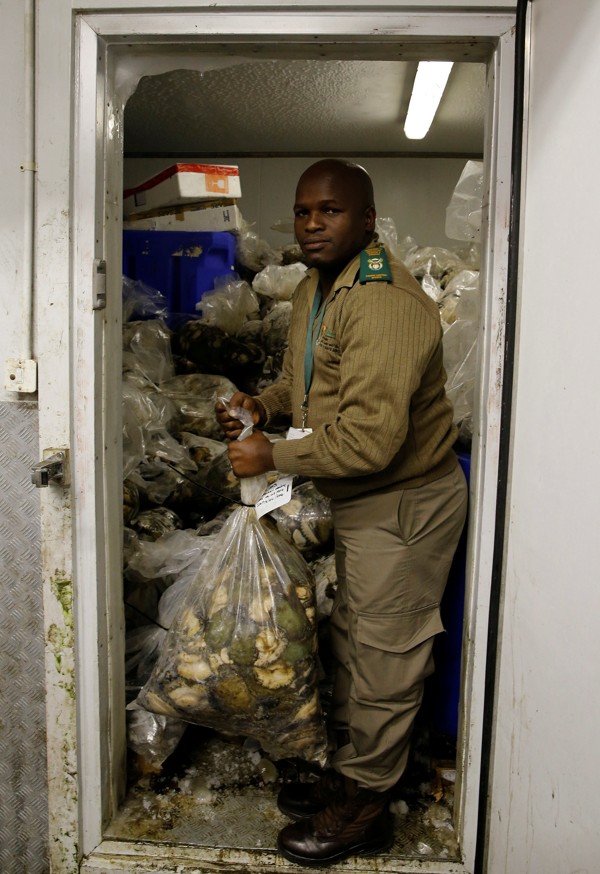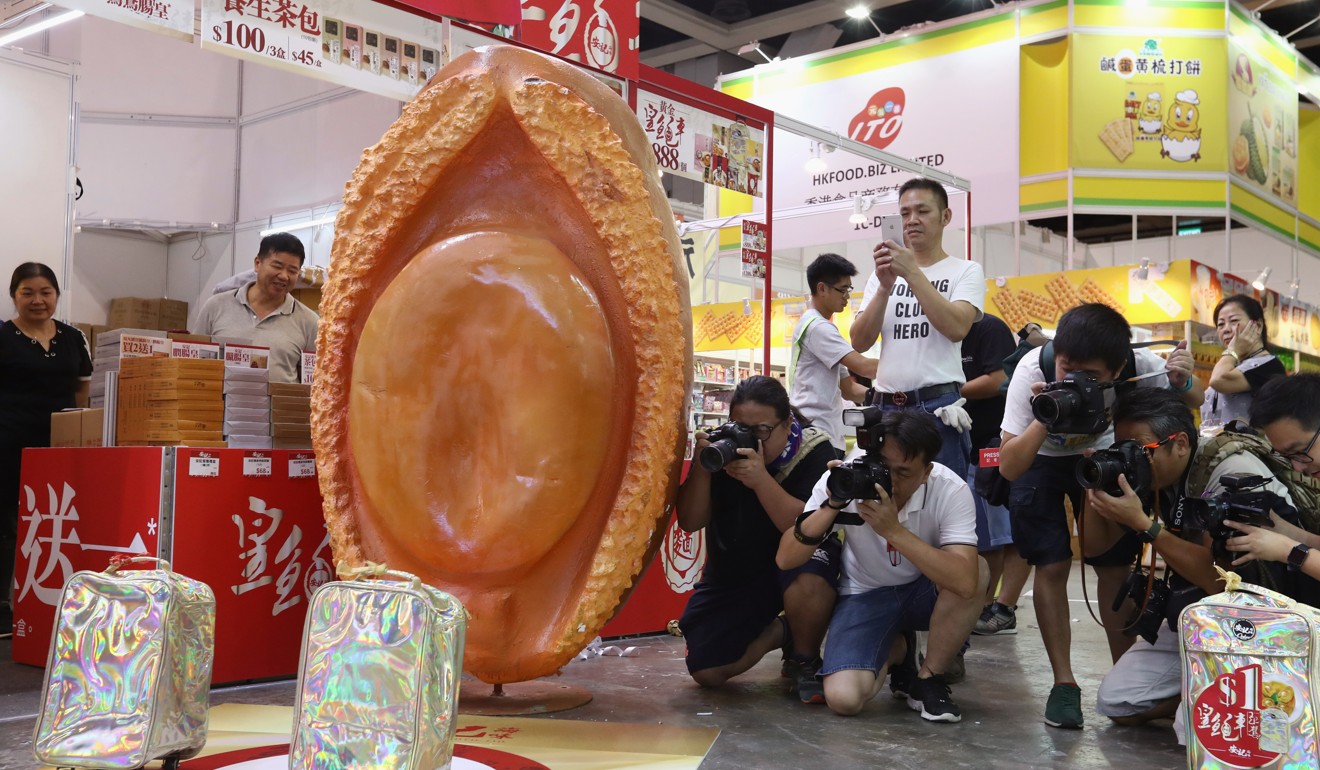
Abalone demand by Chinese gangs depletes South Africa’s supply, costs the country US$60 million annually, report says
Chinese criminal syndicates use crystal meth as a reward for gangs in the Western Cape, a region that includes Cape Town, to dive for the coveted delicacy; the abalone is fished illegally and outside of quota systems, according to a wildlife trade monitoring network
Demand for abalone by Chinese gangs has caused South Africa’s stocks of the marine molluscs to be depleted at a record rate, costing the country US$60 million annually, a report has warned.
Wildlife trade monitoring network Traffic said the country’s coasts have been stripped of at least 96 million abalone in the last 18 years, with 9.6 million poached in 2016 alone.
“These are almost the highest – if not the highest – poaching levels we have seen in the last twenty or more years,” said the report published late Tuesday.

The once abundant high-end delicacy, a chewy sea snail with a distinctive salty taste, is popular at feasts and wedding banquets in the Far East.
Despite a mounting risk that abalone could become extinct, they were removed from the Convention on International Trade in Endangered Species of Wild Fauna and Flora list of at-risk species in 2010.
Chinese criminal syndicates use crystal meth as a reward for gangs in the Western Cape, a region that includes Cape Town, to dive for the coveted delicacy.
It is fished illegally and outside of quota systems, Traffic said.
“Driven by sophisticated transnational networks and local gangs, the illegal abalone trade has been fuelled by deeply entrenched socio-economic disparities,” the report said.
The authors warned that bitter fights over official local fishing quotas and gang violence were pushing people into the trade.
Ninety per cent of both legal and illegal exports end up in Hong Kong.

The report found that the lack of regulation meant that once the abalone were smuggled out of South Africa, they could be easily re-sold without fear of detection.
“Because of the involvement of organised crime, the apparent links to gangs in Cape Town, the links between the trade in abalone and the trade in drugs, there are also some clear negative socio-economic impacts,” said Markus Burgener of Traffic in a statement.
Recent crime statistics show that the Western Cape has the highest number of murders in South Africa, driven by gang violence.

.png?itok=arIb17P0)